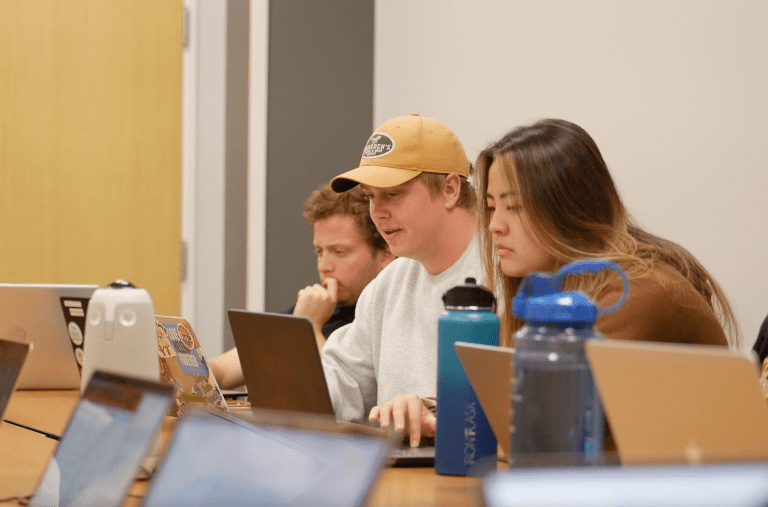Last evening, I had the honor and the pleasure to host a debate between seven candidates in a crowded field for the Associated Students of Stanford University Undergraduate Senate, with Mark Allen Cu and Dilan Gohill.
The debate was an incredibly strong showing from all of the candidates, who demonstrated both passion and deep consideration on how to approach issues on campus. If you have the time and want to learn more about the candidates before you vote, I strongly encourage you to watch the recording, which is available on YouTube.
That said, I understand two hours of debate is a lot to get through in the middle of midterm season, and some candidates undeniably had a stronger showing than others. On that basis, I’ve decided to make three endorsements for the Undergraduate Senate election.
Before I get into names, I’d like to briefly explain my thought process, so that you can consider whether it aligns with your values as a voter.
First, I am only endorsing candidates that showed up to the debate. Partially this is because engaging in a debate demonstrates the kind of dedication to the role and willingness to engage with disagreement I expect from my representatives.
Notably, both Arvind Asokan and Noah Maltzman let me know that they could not make it to the debate due to personal circumstances or conflicts. Maltzman further impressed me by sending in written answers to debate questions in lieu of his presence: Among those answers, his proposal for grant application deadlines to be spread out throughout the year to spread out the workload of the appropriations committee stuck out to me as a pragmatic and well-articulated potential reform. Maltzman, I should note, writes for The Daily, though he is not involved in the Opinions section and primarily contributes to Sports.
Ultimately, though, the only candidates I feel qualified to recommend are the candidates I questioned live.
Second, because many of the candidates expressed similar views on policy issues, my endorsements are based largely on who I think will be the most effective and dedicated senators. I made that assessment, which is inherently uncertain and subjective, based largely on the clarity of a candidate’s vision for why they were running and how they would get their policy goals accomplished once elected.
All that said, my endorsements are as follows. In the spirit of preferential voting, I’ve ranked them in order.
#1 — Mandla Msipa
Msipa was sharp and articulate throughout the debate. Not only did he regularly make the other candidates and myself laugh, Msipa quickly brought the issues back down to earth, making it abundantly clear that he understands the issues he aims to solve. On top of that, his platform is detailed and thoughtful, rich with targeted interventions to improve the student experience. My only criticism is that Msipa said his top issue was housing. While I find this an admirable goal, Msipa did not convince me that this was an area where the ASSU, faced with a lack of authority over how RD&E operates and RD&E’s general lack of receptivity to student feedback, could realistically make a large impact.
#2 — Ivy Chen
I’m a huge fan of incumbents who can demonstrate that their experience will help them get the job done. Chen did so in spades. She highlighted exactly how she plans to get things done as a senator, combining collaboration with faculty and administrators with dogged persistence and a firm commitment to upholding the interests of students every step of the way.
#3 — David Sengthay
Sengthay said it best themself — “I do everything from the bottom of my heart.” Not only were they articulate and informed, Sengthay’s passion and dedication came through in their debate performance, which foregrounded their ideals and commitment to community every step of the way. In fact, Sengthay was the only candidate from the first round of debate to stay and support his fellow candidates throughout the entirety of the second half.
I’m not entirely convinced that their goal to eliminate all course fees is something the ASSU can accomplish, or that recording all lectures would, in the big picture, be a good idea, but I am convinced that, as a senator, Sengthay would know both when to compromise and when to never, ever back down.
